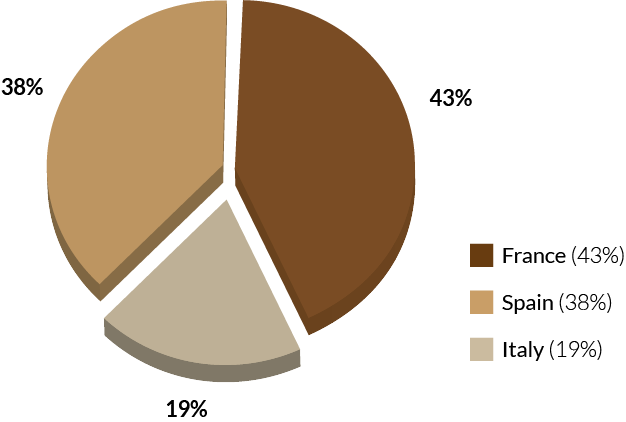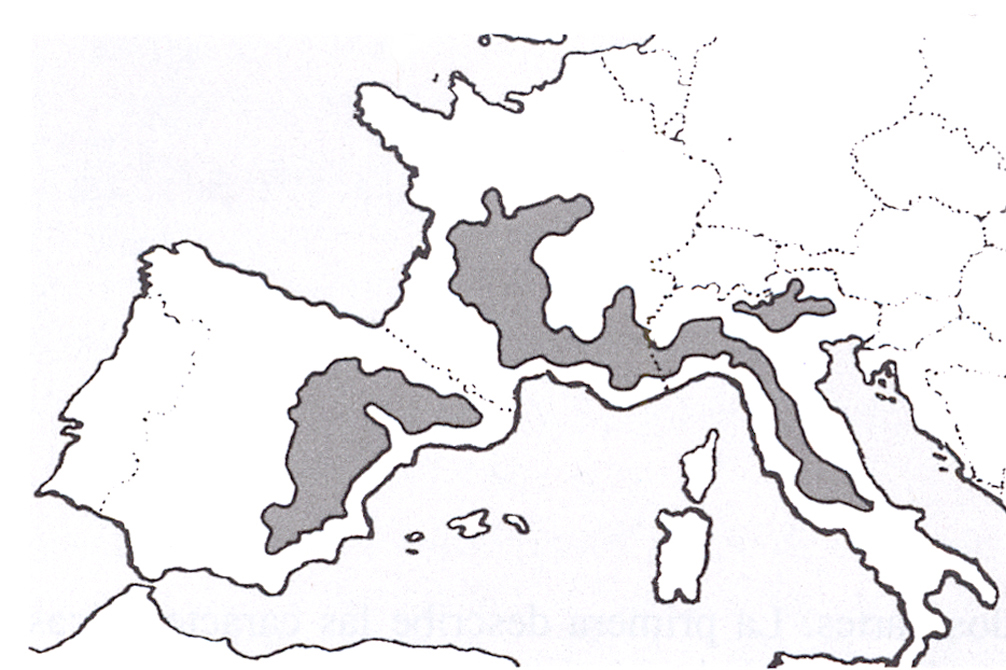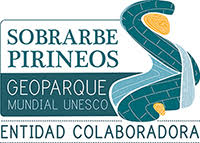AROMA
The distinctive aroma of the black truffle – or tuber melanosporum – is what makes it special. The organoleptic features of the truffle enable this exquisite product to have surprising and unique culinary possibilities, providing an interesting gastronomic value.
LOCATION
This fungus grows at heights of 300 to 1100 metres above sea level on well drained calcareous land. It favours sunny regions, where it grows as ectomycorizzhae with its symbiont – amongst which are mainly the holm oak, oak, kermes oak and hazelnut.
SYMBIOSIS
The benefits or advantages of mycorrhizal symbiosis can be stated in short for the two participants in the following manner:
- For the fungus: obtaining organic nutrients.
- For the plant: the benefit is physiological, nutritional and sanitary: better water and mineral nutrient uptake, better growth and adaptation to adverse conditions, barrier against diseases.
COLLECTION
The black truffle collection period in Spain runs from the beginning of December to the end of March. The highest note of quality in the black truffle is found in the months of January and February.
MORPHOLOGY
The morphology of the truffle that we collect may be almost perfectly rounded or feature a somewhat more irregular surface. This is entirely dependent on the texture of the land where it has grown. In general, the wild truffle is rather irregular.
PERIDIUM
The structure and colour of the peridium (outer layer) of the tuber melansporum truffle allow it to be distinguished from other black truffles. It is predominantly black; its structure features polygonal projections of 3 to 5 mm in height; the warts and apexes may be a reddish brown.
GLEBA
The colour of the gleba (interior) varies depending on the ripeness of the fruiting body. Examining the gleba reveals that it is criss-crossed by creamy white veins, while its tone changes from the white of the least ripe truffles, passing through grey and dark brown to a violet-black.
PRODUCTION
Black truffle production in Spain accounts for about 30-40% of European production.
Production of Tuber melanosporum in Europe during the 90s.










